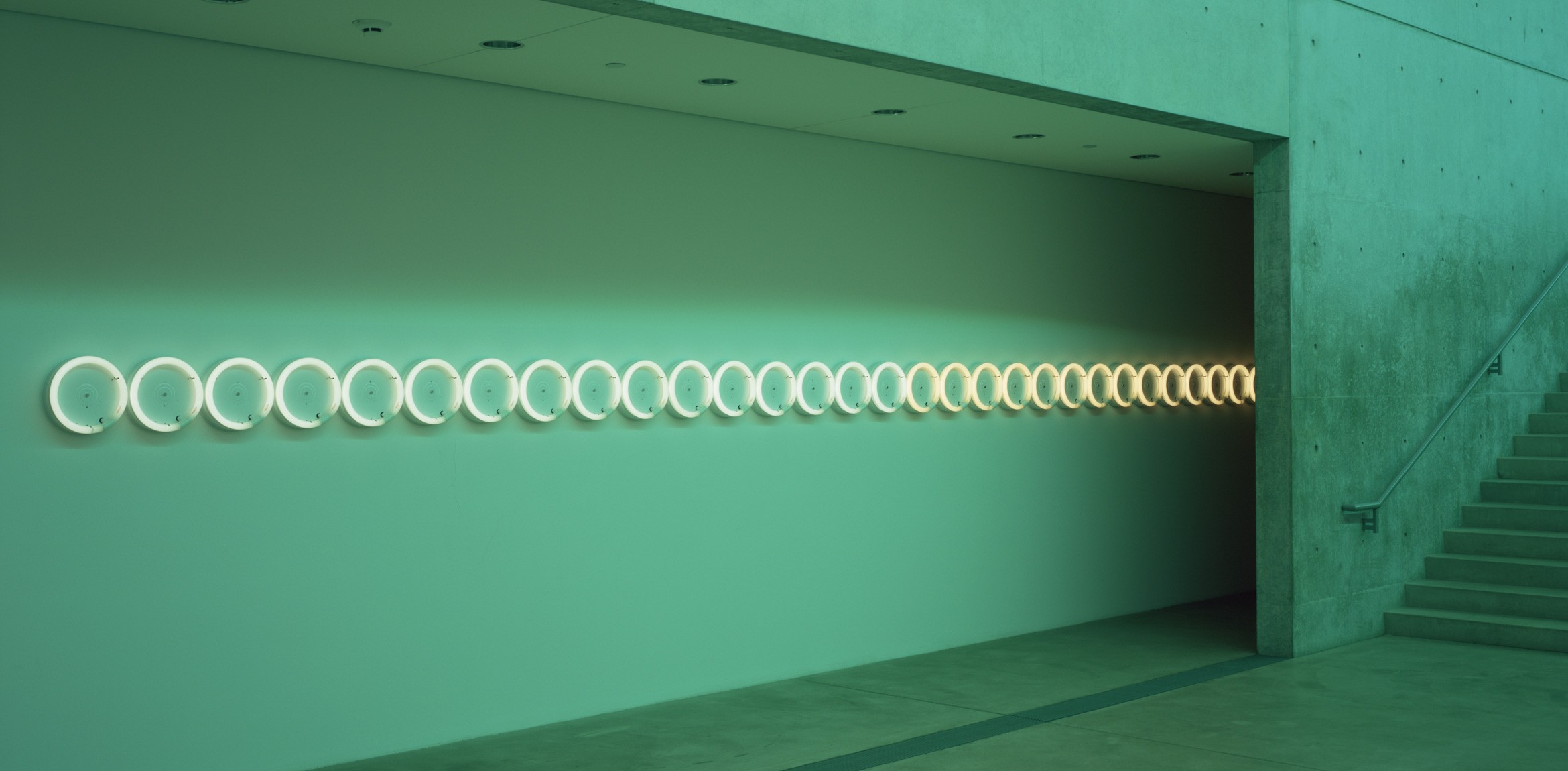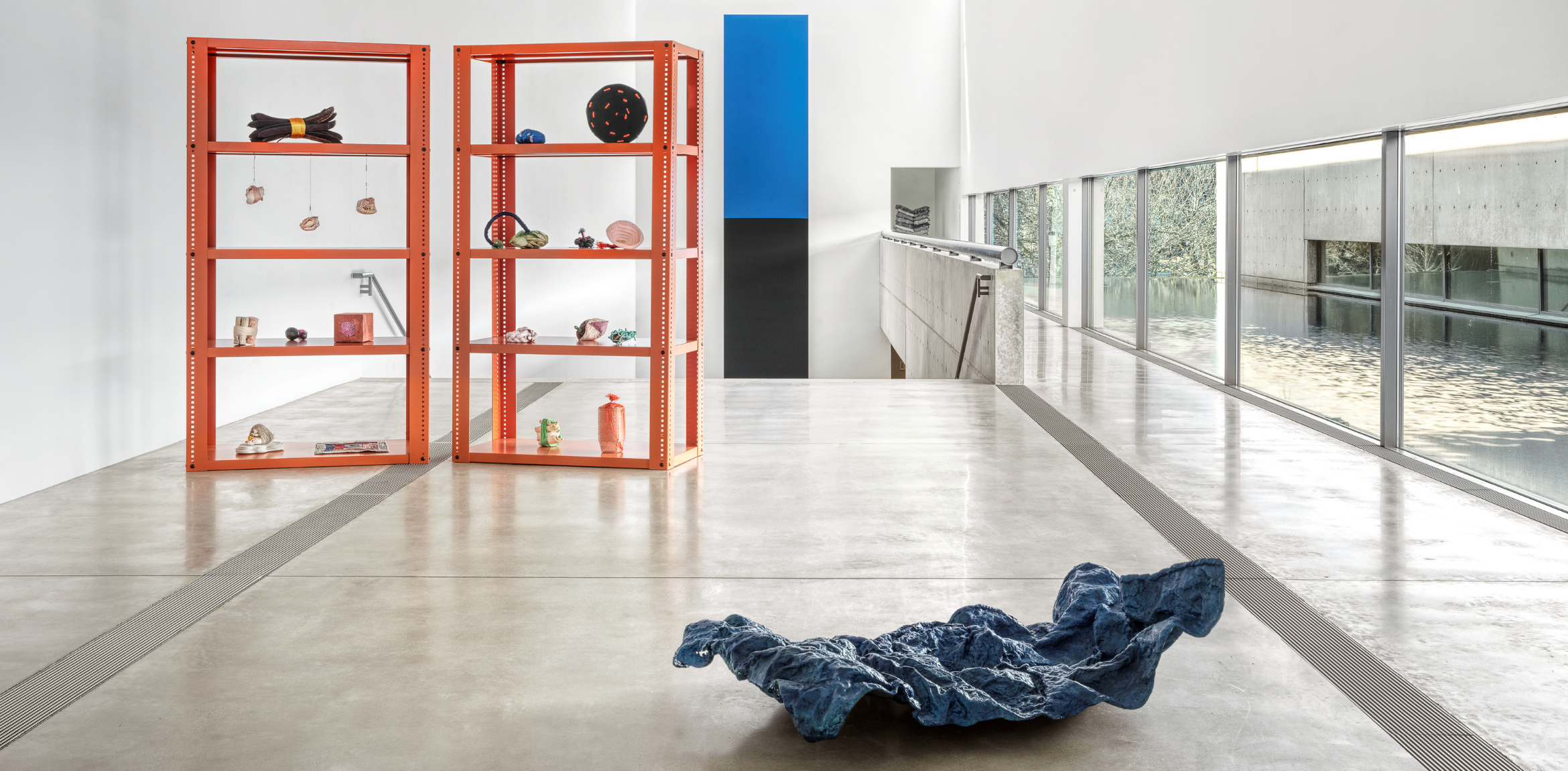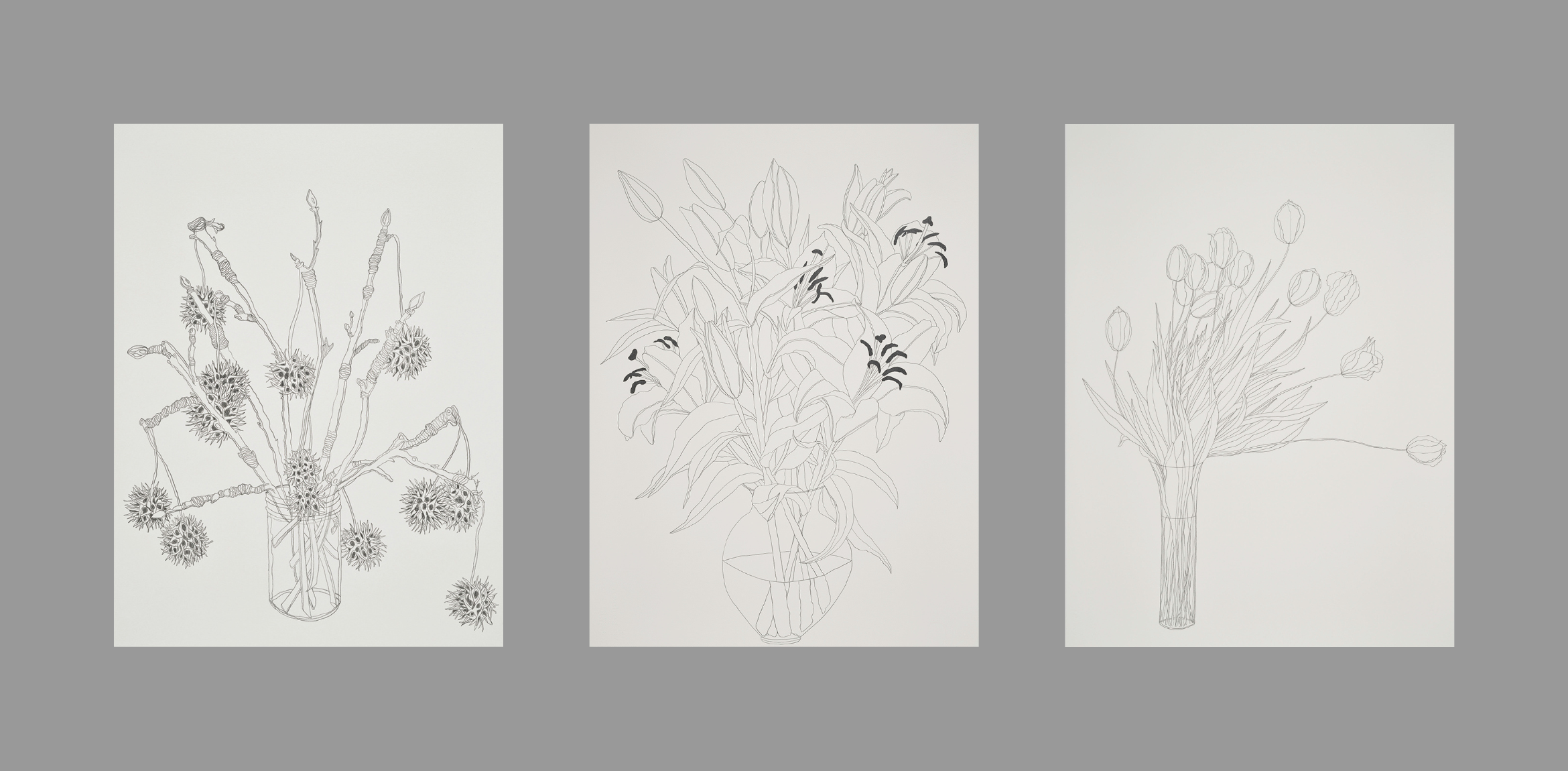Dan Flavin: Constructed Light

Dan Flavin
untitled (in memory of Barbara Schiller), 1973
Courtesy of Stephen Flavin
© Stephen Flavin/Artists Rights Society (ARS), New York
Lower Main Gallery and Lower Corridor
Photograph by Robert Pettus
The focus of this exhibition was an immersive experience of the art of Dan Flavin—sculptural installations composed of mass-produced light fixtures and fluorescent tubes. Taken as a whole, Flavin’s work extends well beyond its physical hardware to encompass the surrounding space that it illuminates, and his art is therefore inseparable from the physical context in which it is presented. With Dan Flavin: Constructed Light, the dialogue between art and architecture at the Pulitzer was amplified by light as never before. In daylight, the perceived intensity of Flavin’s fluorescent light changed, as did one’s perception of the building. After dusk, when fluorescence reigned, the building became a sculpture of light both inside and from afar.
The exhibition was curated by Tiffany Bell, project director of the Dan Flavin catalogue raisonné, who was also the first guest curator to conceive an exhibition for the Pulitzer. Working with Steve Morse, exhibition coordinator and conservator at the Dan Flavin Studio, Bell established an invaluable set of precedents that created a framework for resolving questions about how to install Flavin’s art in the absence of the artist himself.
To more fully explore Flavin’s engagement with architecture and space, Constructed Light featured Flavin’s work both throughout galleries and in formerly private corridors, offering visitors the chance to see areas of the building that were otherwise inaccessible. A second phase of the exhibition—installed midway through its run—seized on the serial nature of Flavin’s artistic practice. By altering the color combinations of the lamps, the second phase emphasized Flavin’s frequent use of single form or structure to create entirely different works and effects.

